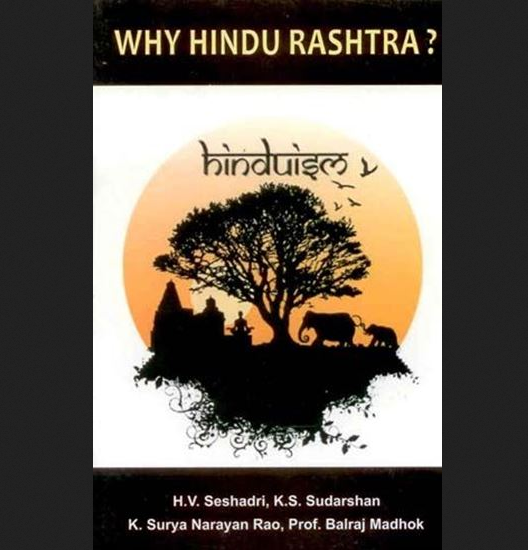


In the recent Lok Sabha elections, the people of India have sent a clear message to the incoming government: Do not undermine the ideals of diversity, constitutionalism, and federalism. This article argues that the idea of a Hindu Rashtra, where Muslims are marginalized or disenfranchised, is a dangerous and divisive fantasy. Instead, all citizens should focus on promoting development and upholding the rights of all individuals, regardless of their religion.
Hindus Must Unite: The Continuing Debate on Hindu Nationalism in India
The phrase "Hindus Must Unite" has been a rallying cry for Hindu nationalists in India for decades. The ideology of Hindu nationalism, also known as Hindutva, seeks to establish a Hindu Rashtra, or Hindu nation, in India.
Background
The roots of Hindu nationalism lie in the late 19th century, when Hindu reformers began to assert the superiority of Hindu culture and values over Western and Islamic influences. After India's independence in 1947, the Rashtriya Swayamsevak Sangh (RSS), a paramilitary organization founded in 1925, became the primary proponent of Hindu nationalism.
Recent Developments
In recent years, Hindu nationalism has gained significant political support in India. The Bharatiya Janata Party (BJP), which has been in power since 2014, is closely associated with the RSS. The BJP's policies, such as the introduction of laws criminalizing cow slaughter and the construction of a Hindu temple on a disputed site in Ayodhya, have been seen by some as attempts to consolidate Hindu power.
Criticism of Hindu Nationalism
Critics of Hindu nationalism argue that it is a divisive and dangerous ideology. They point to instances of violence against Muslims and other minorities, including the 2002 Gujarat riots and the recent lynchings of suspected cow smugglers. They also argue that Hindu nationalism undermines India's constitutional values of secularism, pluralism, and equality for all citizens.
Arguments for Hindu Nationalism
Supporters of Hindu nationalism maintain that it is necessary to protect Hindu culture and values from perceived threats from Islam and the West. They argue that India is a Hindu-majority country and that Hindus have a right to assert their religious and cultural identity. They also claim that Hindu nationalism promotes national unity and strength.
Top 5 FAQs
Hinduism is a religion, while Hindu nationalism is a political ideology that seeks to establish a Hindu nation in India.
Critics of Hindu nationalism argue that it is a divisive and dangerous ideology that undermines India's democratic principles.
These policies include the introduction of laws criminalizing cow slaughter and the construction of a Hindu temple on a disputed site in Ayodhya.
Supporters of Hindu nationalism argue that it is necessary to protect Hindu culture and values from perceived threats from Islam and the West.
The future of Hindu nationalism in India is uncertain. It remains a powerful force in Indian politics, but it also faces significant opposition from those who believe it is a threat to democracy and pluralism.

In a strongly worded statement, politician Shashi Tharoor expressed his opposition to the VB-G RAM G Bill that aims to replace MNREGA. Tharoor argued that the removal of Mahatma Gandhi's name from the scheme goes against its core values and also criticized other proposed changes such as financial alterations and a shift of responsibility to states. The politician believes that the Bill poses a threat to the principles of federalism and that the scheme should not be made subject to executive notification.

Union Minister Shivraj Singh Chouhan introduced the Viksit Bharat - Guarantee for Rozgar and Ajeevika Mission (Gramin): VB-G RAM G Bill, 2025 in the Lok Sabha. The bill aims to establish a new rural development framework aligned with the national vision of Viksit Bharat @2047 and seeks to provide a statutory guarantee of 125 days of wage employment to each rural household. The government is determined to pass the bill in this parliamentary session and failure to do so could complicate budgetary provisions.

In a significant move to improve academic standards, India's new Viksit Bharat Adhishthan Bill, 2025, places student feedback at the heart of higher education accreditation. Union Education Minister Dharmendra Pradhan, citing the National Education Policy 2020, announced that for the first time, students will have a direct impact on accreditation outcomes. The new framework will also increase institutional autonomy and encourage innovation, but with a strong emphasis on accountability through transparent student-led evaluations. The consolidation of regulators and accreditation bodies aims to streamline and strengthen the quality of higher education in India.

On the occasion of Vijay Diwas, a day commemorating India's 1971 victory over Pakistan, Rahul Gandhi, Leader of Opposition in Lok Sabha, paid his respects to the brave soldiers who showed indomitable courage, leading to the liberation of East Pakistan and the formation of Bangladesh. The date also marks the surrender of 93,000 Pakistani soldiers to the Indian Armed Forces and is a tribute to the bravery and sacrifice of Indian soldiers. Congress National President Mallikarjun Kharge also highlighted the 1971 victory as a great example of humanity and justice under the leadership of then Prime Minister Indira Gandhi.

Senior Congress leaders respond to Delhi court's refusal to take ED's chargesheet in the National Herald-Young Indian case, emphasizing the lack of evidence and foundation of the case. They accuse the BJP of exaggeration and targeting the opposition, claiming that the ruling has validated their long-held belief that the case is politically motivated. Congress leader Abhishek Manu Singhvi highlights the legality and commonality of corporate restructuring, while Congress general secretary K.C. Venugopal condemns the Modi government's targeting of Sonia Gandhi and Rahul Gandhi without any legal basis.

The Congress party declared a moral and legal triumph after the Delhi court dismissed the Enforcement Directorate's chargesheet in the National Herald-Young Indian case. The judge noted that the chargesheet was based on a private complaint rather than an FIR, making it legally inadmissible. The Congress accused the Modi government of maliciously targeting its leaders and misusing central agencies for political gain. They vowed to continue fighting for truth and democratic rights, asserting that nothing could deter them from their mission.

India commemorates Vijay Diwas every year on December 16 to honour the soldiers who sacrificed their lives during the 1971 war with Pakistan, which resulted in the creation of Bangladesh. As part of this year's celebrations, the Indian Army displayed a reconstructed Turkish armed drone, Yiiha, which was shot down by India during Operation Sindoor on May 10. The Kamikaze class of drones, also known as "suicide drones," were used by Pakistan to target Indian military and civilian installations, but were almost all destroyed by the Indian military.

India celebrates the 54th Vijay Diwas, honoring the bravery and sacrifice of its soldiers in the 1971 war that led to the liberation of Bangladesh. Political leaders, including Prime Minister Narendra Modi and President Droupadi Murmu, pay glowing tributes to the armed forces and their unmatched courage. The Army marks the occasion by recalling the historic triumph and the flawless coordination between different branches of the military, with an impressive Military Tattoo in Kolkata.

Renowned spiritual leader and former BJP MP, Ram Vilas Vedanti, passed away at the age of 67 due to a heart attack. Known for his significant role in the Ram Janmabhoomi movement, Vedanti had been admitted to a hospital in Rewa for a blood infection and low blood pressure. Attempts to transport him to a better medical facility were unsuccessful due to bad weather. Political leaders, including Uttar Pradesh Chief Minister Yogi Adityanath, expressed their condolences and praised Vedanti's contributions to society.

Indian Ambassador to the United Nations, Harish P, slammed Pakistan for misusing international platforms for its hostile agenda against India at the UNSC Open Debate on “Leadership for Peace”. He objected to Pakistan’s reference to Jammu and Kashmir and questioned its democratic credentials while reaffirming India’s stance on cross-border terrorism. This reflects the ongoing strain in India-Pakistan relations and New Delhi’s determination to counter any attempt by Islamabad to internationalise bilateral disputes.